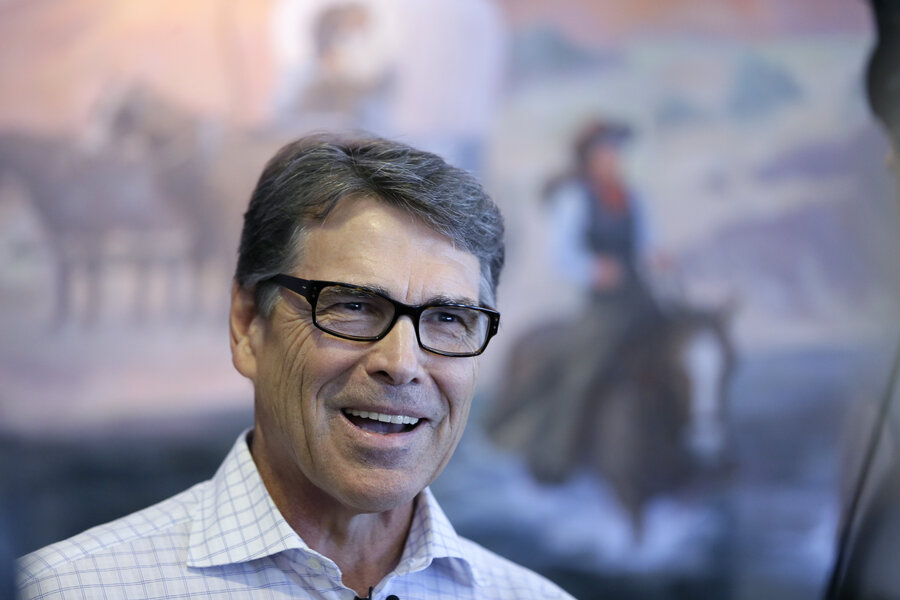Why might religion be taking back seat in Rick Perry campaign?
Loading...
Compared with his 2012 campaign, Rick Perry is talking less about religion and his faith during his current presidential campaign.
Talking to Iowa crowd, the Republican presidential hopeful and former Texas governor did not mention religion until 25 minutes into his address, and that was only when he was asked about it.
"Nothing against golf, but on Sunday morning, you're not going to see me at the golf course," Mr. Perry said, referring to his church attendance.
While Republican rivals Mike Huckabee, Rick Santorum, and Ted Cruz are pushing hard to mobilize the conservative evangelical vote, Perry prefers to emphasize his 14 years of executive experience leading the second most populous state.
That was not the case in 2012. A week before entering the 2012 race, Perry held a seven-hour prayer meeting at a Houston football stadium where he declared before 30,000 believers: "Father, our heart breaks for America. We have forgotten who made us, who protects us, who blesses us."
Perry also produced a television ad that played heavily in Iowa in which he proclaimed "I'm not ashamed to admit I'm a Christian."
But this time he barely mentions Christianity in his speeches.
Perry's super PACs are broadcasting TV commercials in Iowa focused on security at the far-away border and Perry's cotton farm upbringing.
The reason behind Perry’s shift might be young voters who are increasingly secular.
The Christian Science Monitor’s Linda Feldmann wrote in March that Republicans have lost badly among young voters in recent presidential elections:
Doubts about God’s existence among young adults are growing fast. In 2007, a Pew Research Center survey found that 83 percent of Millennials in the United States said they never doubted God’s existence. Five years later, that figure was down to 68 percent.
This rising secularism among young voters could put the very ability of the Republican Party to compete nationally at stake. In 2012, President Obama won the youth vote, those aged 18 to 29, by 67 percent to 30 percent. And as long as the GOP is seen as only for the religious – and specifically, those who adhere to only certain beliefs, including opposition to same-sex marriage – it is losing out on millions of potential votes.
“These people are an essential component of our growing electorate,” Jamila Bey, an African American journalist and board member of the group American Atheists, told the Monitor. “We ignore them at our peril.”
This time Perry seems to be more aware of young seculars, but he also insists that his faith remains as solid as ever.
"Nothing's changed between me and the Lord," he said between campaign stops in Iowa. "I'm a different candidate, but I'm still the same person at my core."
This report includes material from the Associated Press.








